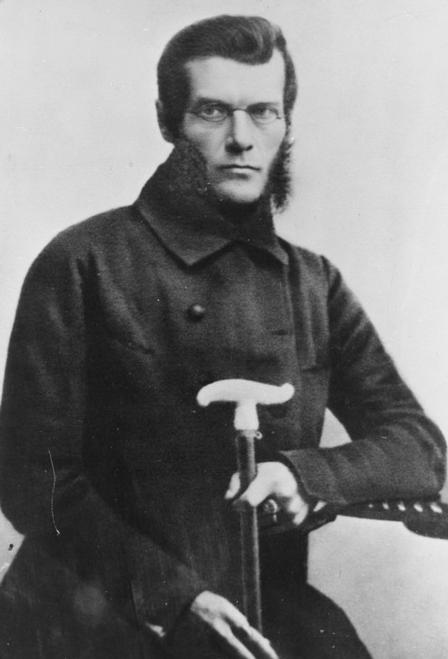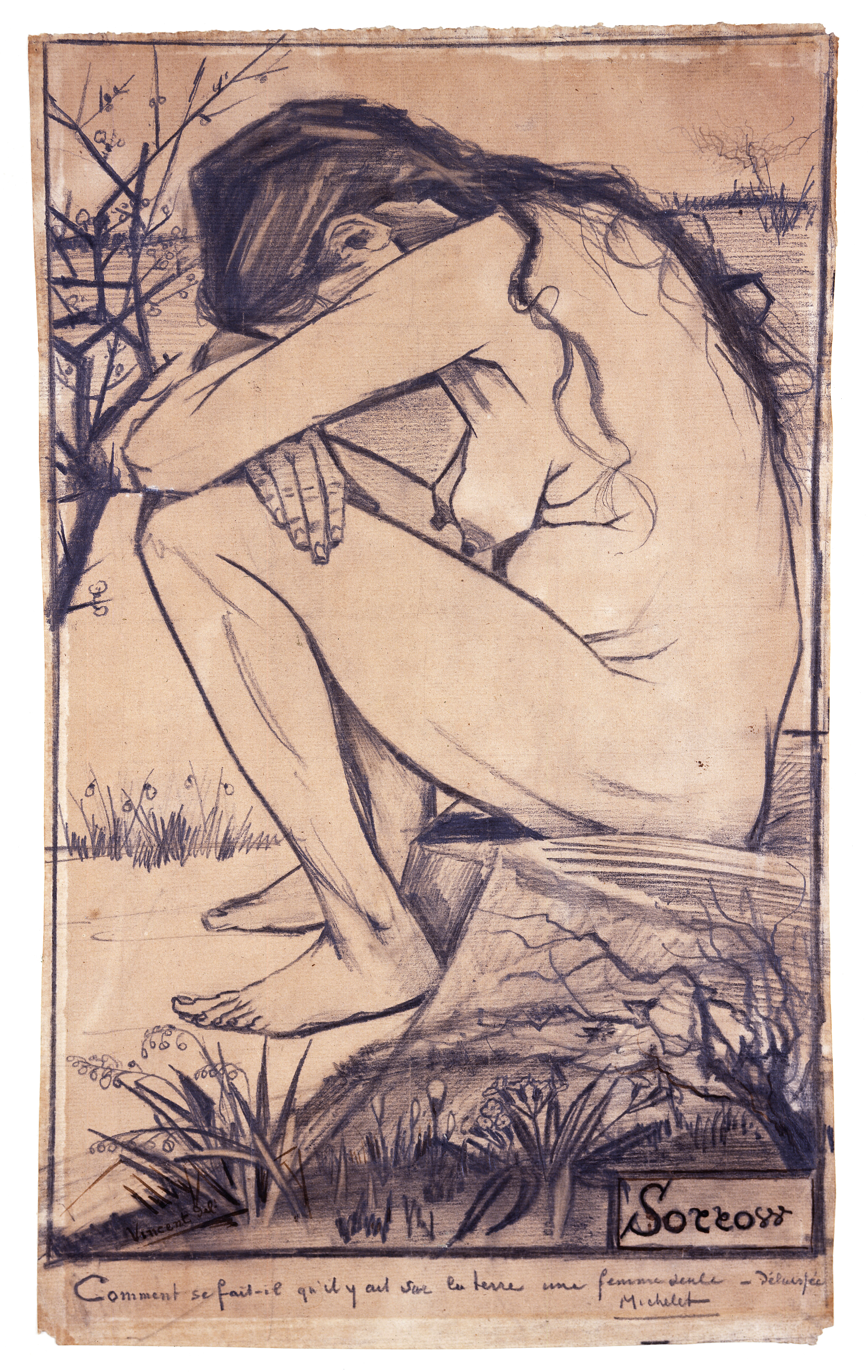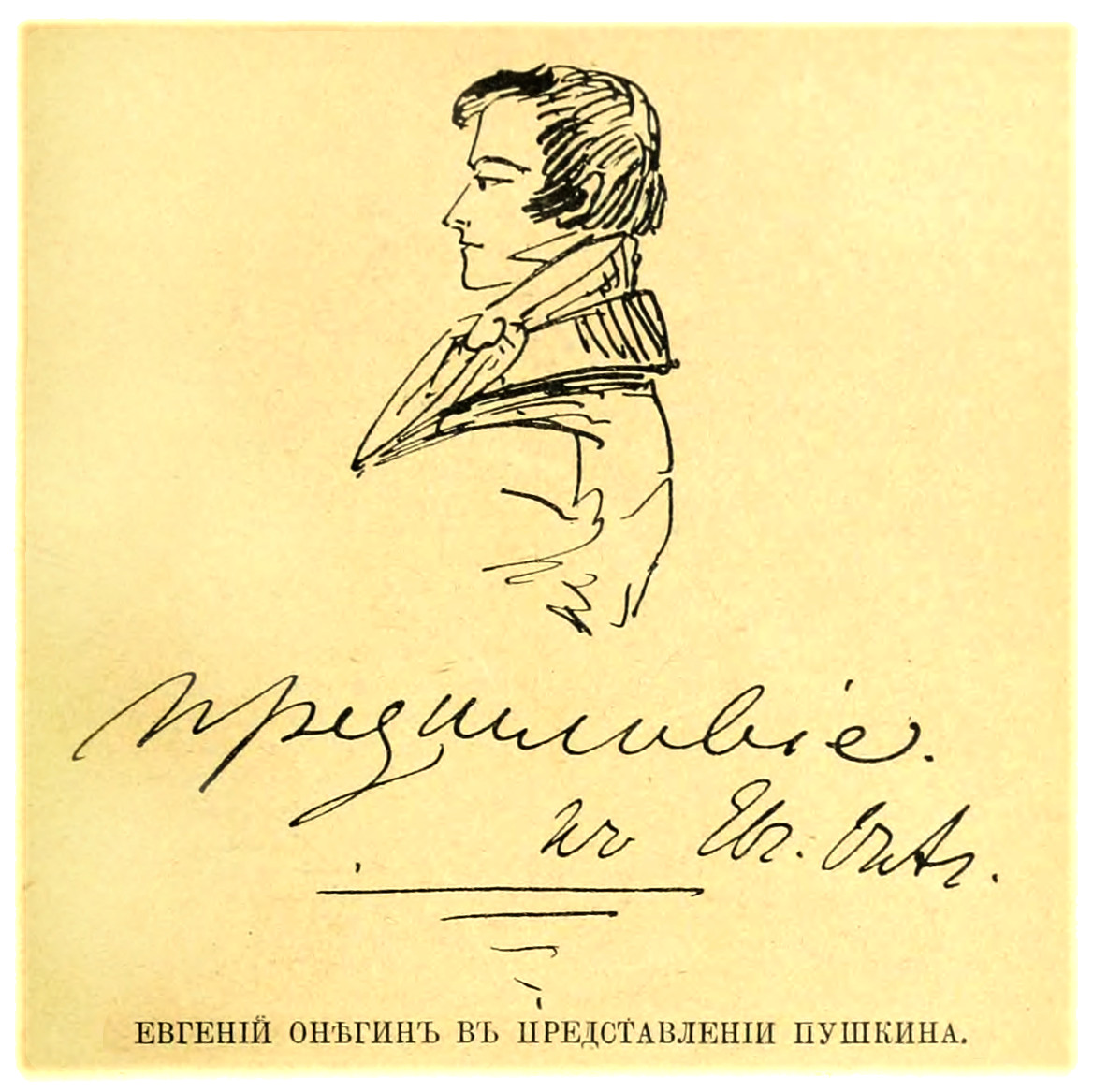|
Ivan Vasilyevich Kireyevsky
Ivan Vasilyevich Kireyevsky (russian: link=no, Ива́н Васи́льевич Кире́евский; 3 April 1806, Moscow – 23 June 1856, Saint Petersburg) was a Russian literary critic and philosopher who, together with Aleksey Khomyakov, is credited as a co-founder of the Slavophile movement. Early life and career Ivan Kireyevsky and his brother Pyotr were born into a cultivated noble family of considerable means. Their father was known for hating French atheism so passionately that he would burn heaps of Voltaire's books, acquired specifically for the purpose. He contracted a fatal case of typhus while treating wounded soldiers during the French invasion of Russia. The boy was just six at the time of his death; he was brought up by a maternal uncle, Vasily Zhukovsky, and his mother, Avdotya Yelagina, who would later become an influential lady with a brilliant salon in Moscow. She professed her dislike of Peter the Great for his treatment of his wife Eudoxia and the ... [...More Info...] [...Related Items...] OR: [Wikipedia] [Google] [Baidu] |
Kireevsky
Also transliterated as "Kireevsky" Kireyevsky (masculine), Kireyevskaya (feminine), or Kireyevskoye (neuter) may refer to: *Kireyevsky District, a district of Tula Oblast, Russia * Kireyevsky (rural locality), a rural locality (a ''khutor'') in Volgograd Oblast, Russia * Kireyevskoye, a rural locality (a village) in Tula Oblast, Russia * Ivan Vasilyevich Kireyevsky (1806–1856) Russian literary critic and philosopher See also *Kireyevsk, a town in Tula Oblast, Russia * Kireyevskoye-Pervoye, a rural locality (a village) in Kaluga Oblast Kaluga Oblast (russian: Калу́жская о́бласть, translit=Kaluzhskaya oblast) is a federal subject of Russia (an oblast). Its administrative center is the city of Kaluga. The 2021 Russian Census found a population of 1,069,904. G ... * Kireyevskoye-Vtoroye, a rural locality (a village) in Kaluga Oblast {{Place name disambiguation ... [...More Info...] [...Related Items...] OR: [Wikipedia] [Google] [Baidu] |
Dmitry Venevitinov
Dmitry Vladimirovich Venevitinov (russian: link=no, Дми́трий Влади́мирович Веневи́тинов; – ) was a minor Russian Romantic poet who died (perhaps committed suicide) at the age of 21, carrying with him one of the greatest hopes of Russian literature. He was one of the Russian Schellingians.''Routledge Encyclopedia of Philosophy'' (1998)"Schellingianism, Russian" Biography Of noble parentage, Venevitinov entered the Moscow University in 1824. He became a member of the circle of "wisdom-lovers" ( Lyubomudry), led by Prince Vladimir Odoevsky. Venevitinov and his friends were the young Idealists who introduced into Russia the cult of Goethe and Schelling's metaphysics. Venevitinov's poems (of which there are forty) dwell on philosophical subjects. According to D.S. Mirsky, "his diction is very pure, and his rhythms pure and majestic". In one of his better known poems, Venevitinov vainly pleaded Pushkin to address an ode to Goethe. Venevitinov's earl ... [...More Info...] [...Related Items...] OR: [Wikipedia] [Google] [Baidu] |
Alexander Herzen
Alexander Ivanovich Herzen (russian: Алекса́ндр Ива́нович Ге́рцен, translit=Alexándr Ivánovich Gértsen; ) was a Russian writer and thinker known as the "father of Russian socialism" and one of the main fathers of agrarian populism (being an ideological ancestor of the Narodniki, Socialist-Revolutionaries, Trudoviks and the agrarian American Populist Party). With his writings, many composed while exiled in London, he attempted to influence the situation in Russia, contributing to a political climate that led to the emancipation of the serfs in 1861. He published the important social novel '' Who is to Blame?'' (1845–46). His autobiography, '' My Past and Thoughts'' (written 1852–1870), is often considered one of the best examples of that genre in Russian literature. Life Herzen (or Gertsen) was born out of wedlock to a rich Russian landowner, Ivan Yakovlev, and Henriette Wilhelmina Luisa Haag from Stuttgart. Yakovlev supposedly gave his son the s ... [...More Info...] [...Related Items...] OR: [Wikipedia] [Google] [Baidu] |
Mikhail Pogodin
Mikhail Petrovich Pogodin (russian: Михаи́л Петро́вич Пого́дин; , Moscow, Moscow) was a Russian Imperial historian and journalist who, jointly with Nikolay Ustryalov, dominated the national historiography between the death of Nikolay Karamzin in 1826 and the rise of Sergey Solovyov in the 1850s. He is best remembered as a staunch proponent of the Normanist theory of Russian statehood. Pogodin's father was a serf housekeeper of Count Stroganov, and the latter ensured Mikhail's education in the Moscow University. As the story goes, Pogodin the student lived from hand to mouth, because he spent his whole stipend on purchasing new volumes of Nikolay Karamzin's history of Russia. Pogodin's early publications were panned by Mikhail Kachenovsky, a Greek who held the university chair in Russian history. Misinterpreting Schlozer's novel teachings, Kachenovsky declared that "ancient Russians lived like mice or birds, they had neither money nor books" and that ' ... [...More Info...] [...Related Items...] OR: [Wikipedia] [Google] [Baidu] |
Sobornost
Sobornost ( rus, собо́рность, p=sɐˈbornəstʲ "spiritual community of many jointly-living people") is a Russian term whose usage is primarily attributed to the 19th-century Slavophile Russian writers Ivan Kireyevsky (1806-1856) and Aleksey Khomyakov (1804-1860). The term expresses the need for co-operation between people at the expense of individualism, on the basis that opposing groups focus on what is common between them. Khomyakov believed that the Western world was progressively losing its unity because it was embracing Aristotle and his defining individualism. Kireyevsky believed that G. W. F. Hegel and Aristotle represented the same ideal of unity. Khomyakov and Kireyevsky originally used the term ''sobor'' ( ru , собор) to designate co-operation within the Russian ''obshchina'', united by a set of common convictions and Eastern Orthodox values, as opposed to the cult of individualism in the West. The term ''sobor'' in Russian has multiple co-relat ... [...More Info...] [...Related Items...] OR: [Wikipedia] [Google] [Baidu] |
Individualism
Individualism is the moral stance, political philosophy, ideology and social outlook that emphasizes the intrinsic worth of the individual. Individualists promote the exercise of one's goals and desires and to value independence and self-reliance and advocate that interests of the individual should achieve precedence over the state or a social group while opposing external interference upon one's own interests by society or institutions such as the government. Individualism is often defined in contrast to totalitarianism, collectivism and more corporate social forms. Individualism makes the individual its focus and so starts "with the fundamental premise that the human individual is of primary importance in the struggle for liberation". Anarchism, existentialism, liberalism and libertarianism are examples of movements that take the human individual as a central unit of analysis.L. Susan Brown. '' The Politics of Individualism: Liberalism, Liberal Feminism, and Anarchism''. B ... [...More Info...] [...Related Items...] OR: [Wikipedia] [Google] [Baidu] |
Jules Michelet
Jules Michelet (; 21 August 1798 – 9 February 1874) was a French historian and an author on other topics whose major work was a history of France and its culture. His aphoristic style emphasized his anti-clerical republicanism. In Michelet's 1855 work, ''Histoire de France'' (History of France), he adopted the term "rebirth" that was used first in a work published in 1550 by the Italian art historian Giorgio Vasari. The term was used by Vasari to describe the advent of a new manner of painting that began with the work of Giotto, as the "rebirth (''rinascita'') of the arts." Michelet thereby became the first historian to use and define the French translation of the term, ''renaissance'',Murray, P. and Murray, L. (1963) ''The Art of the Renaissance''. London: Thames & Hudson (World of Art), p. 9. to identify the period in Europe's cultural history that followed the Middle Ages. Historian François Furet wrote that Michelet's ''History of the French Revolution'' (1847) remai ... [...More Info...] [...Related Items...] OR: [Wikipedia] [Google] [Baidu] |
Hegel
Georg Wilhelm Friedrich Hegel (; ; 27 August 1770 – 14 November 1831) was a German philosopher. He is one of the most important figures in German idealism and one of the founding figures of modern Western philosophy. His influence extends across the entire range of contemporary philosophical topics, from metaphysical issues in epistemology and ontology, to political philosophy, the philosophy of history, philosophy of art, philosophy of religion, and the history of philosophy. Born in 1770 in Stuttgart during the transitional period between the Enlightenment and the Romantic movement in the Germanic regions of Europe, Hegel lived through and was influenced by the French Revolution and the Napoleonic wars. His fame rests chiefly upon ''The Phenomenology of Spirit'', ''The Science of Logic'', and his lectures at the University of Berlin on topics from his ''Encyclopedia of the Philosophical Sciences''. Throughout his work, Hegel strove to address and correct the problema ... [...More Info...] [...Related Items...] OR: [Wikipedia] [Google] [Baidu] |
Friedrich Schleiermacher
Friedrich Daniel Ernst Schleiermacher (; 21 November 1768 – 12 February 1834) was a German Reformed theologian, philosopher, and biblical scholar known for his attempt to reconcile the criticisms of the Enlightenment with traditional Protestant Christianity. He also became influential in the evolution of higher criticism, and his work forms part of the foundation of the modern field of hermeneutics. Because of his profound effect on subsequent Christian thought, he is often called the "Father of Modern Liberal Theology" and is considered an early leader in liberal Christianity. The neo-orthodoxy movement of the twentieth century, typically (though not without challenge) seen to be spearheaded by Karl Barth, was in many ways an attempt to challenge his influence. As a philosopher he was a leader of German Romanticism. Biography Early life and development Born in Breslau in Prussian Silesia as the grandson of Daniel Schleiermacher, a pastor at one time associated ... [...More Info...] [...Related Items...] OR: [Wikipedia] [Google] [Baidu] |
Eugene Onegin
''Eugene Onegin, A Novel in Verse'' ( pre-reform Russian: ; post-reform rus, Евгений Оне́гин, ромáн в стихáх, p=jɪvˈɡʲenʲɪj ɐˈnʲeɡʲɪn, r=Yevgeniy Onegin, roman v stikhakh) is a novel in verse written by Alexander Pushkin. ''Onegin'' is considered a classic of Russian literature, and its eponymous protagonist has served as the model for a number of Russian literary heroes (so-called ''superfluous men''). It was published in serial form between 1825 and 1832. The first complete edition was published in 1833, and the currently accepted version is based on the 1837 publication. Almost the entire work is made up of 389 fourteen-line stanzas (5,446 lines in all) of iambic tetrameter with the unusual rhyme scheme , where the uppercase letters represent feminine rhymes while the lowercase letters represent masculine rhymes. This form has come to be known as the "Onegin stanza" or the "Pushkin sonnet". The innovative rhyme scheme, the natural tone a ... [...More Info...] [...Related Items...] OR: [Wikipedia] [Google] [Baidu] |
Purple Prose
In literary criticism, purple prose is overly ornate prose text that may disrupt a narrative flow by drawing undesirable attention to its own extravagant style of writing, thereby diminishing the appreciation of the prose overall. Purple prose is characterized by the excessive use of adjectives, adverbs, and metaphors. When it is limited to certain passages, they may be termed purple patches or purple passages, standing out from the rest of the work. Purple prose is criticized for desaturating the meaning in an author's text by overusing melodramatic and fanciful descriptions. As there is no precise rule or absolute definition of what constitutes purple prose, deciding if a text, passage, or complete work has fallen victim is a somewhat subjective decision. According to Paul West, "It takes a certain amount of sass to speak up for prose that's rich, succulent and full of novelty. Purple is immoral, undemocratic and insincere; at best artsy, at worst the exterminating angel of de ... [...More Info...] [...Related Items...] OR: [Wikipedia] [Google] [Baidu] |
Alexander Pushkin
Alexander Sergeyevich Pushkin (; rus, links=no, Александр Сергеевич ПушкинIn pre-Revolutionary script, his name was written ., r=Aleksandr Sergeyevich Pushkin, p=ɐlʲɪkˈsandr sʲɪrˈɡʲe(j)ɪvʲɪtɕ ˈpuʂkʲɪn, a=ru-Pushkin.ogg; ) was a Russian poet, playwright, and novelist of the Romantic era.Basker, Michael. Pushkin and Romanticism. In Ferber, Michael, ed., ''A Companion to European Romanticism''. Oxford: Blackwell, 2005. He is considered by many to be the greatest Russian poetShort biography from University of Virginia . Retrieved 24 November 2006.Allan Rei ... [...More Info...] [...Related Items...] OR: [Wikipedia] [Google] [Baidu] |

_(1830s%2C_GIM).jpg)





